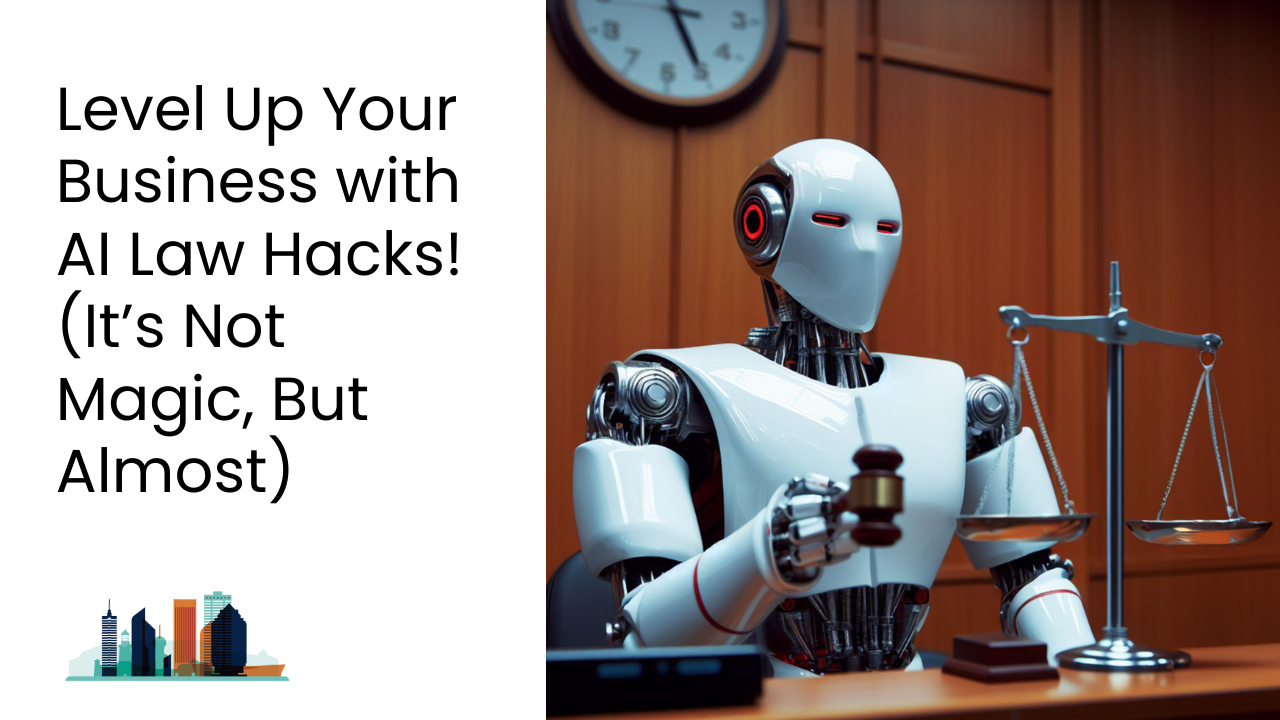
25 Jun Level Up Your Business with AI Law Hacks! (It’s Not Magic, But Almost)
Small and Medium Enterprises (SMEs) often struggle with legal issues due to the high costs of hiring lawyers for agreements they may or may not need. Big law firms typically do not prioritise these smaller clients, leaving SMEs to seek alternatives like ChatGPT for drafting legal documents. However, while AI tools can be helpful, they can also be misleading if not used correctly. This article explores the current state of legal access for SMEs, the unique challenges of South African law, and how SMEs can leverage AI effectively.
Understanding SMEs
SMEs make up 98% of all businesses, employ 50-60% of the workforce, and contribute around 40% to the GDP. Despite their significant role in the economy, many SMEs fail due to various challenges. The business environment can be particularly hostile for SMEs, with government regulations often imposing significant burdens. “Red tape” is one of the most common causes of failure for SMEs, as regulations can be overly burdensome. Government regulations like income tax, VAT, the Skills Development Levy, and the Unemployment Insurance Fund are additional obstacles to SME growth.
The Current State of Access to Law and Legal Remedies
The legal system is not set up to cater to the needs of SMEs efficiently. The general perception is that contacting a lawyer automatically leads to a hefty bill, which discourages many from seeking necessary legal advice. Although AI tools like ChatGPT have been suggested as potential solutions, they often provide inaccurate or misleading information.
Most online legal information is based on US and European laws, and AI tools often rely on these sources, which may not be applicable in all contexts. South African laws are particularly complex and difficult to navigate, with thousands of pages of legal text that can be daunting for anyone without a legal background. Moreover, the legal industry has little incentive to change this status quo, which leaves many SMEs without the time or resources to access the law successfully.
Steps to Navigate the Law
For SMEs to effectively navigate the legal landscape, they need to follow several steps:
- Determine the Accessibility of the Law: Understand where and how to access relevant legal information.
- Find Law of Relevance: Identify the specific laws that apply to their situation.
- Resolve References in the Law: Understand cross-references and interconnected legal provisions.
- Translate the Law: Interpret legal jargon into understandable terms.
- Understand the Law: Gain a comprehensive understanding of the legal requirements.
- Apply the Law: Know how to use the law in their specific context.
- Decide on a Course of Action: Determine the most appropriate legal action based on their rights and obligations.
Deciding on a Course of Action
Once the legal situation is understood, SMEs have several options:
- Take No Action: If there is no legal basis or if the issue is not worth the investment in terms of time and money.
- Create Documentation: For non-dispute legal matters, such as business administration tasks.
- Demand the Counterparty Remedy Their Mistake: For instance, sending a letter of demand to clients who refuse to pay.
- Mediation: Engage in mediation for disputes. Online or automated dispute resolution is a growing field and including arbitration guidelines in service-level agreements (SLAs) can be beneficial.
GPT Hacks for SMEs
While many people use GPT for generating responses to legal prompts, it also excels in summarization, proofing, and data analysis. To use GPT more effectively, users should provide it with all available information and instruct it to focus specifically on the context of South African law. Additionally, utilising validator architecture can enhance its outputs. This involves asking GPT a question, copying its response, pasting the original response in a new chat, and instructing GPT to improve it, which typically results in more detailed and accurate suggestions. This method leverages GPT’s capabilities to refine and enhance the quality of the generated legal content.
Amicus
Amicus is an AI-driven legal assistant designed to support SMEs. It combines conversational AI with an extensive index of South African law to provide tailored legal services. AI tools like Amicus highlight the symbiotic relationship between AI and human expertise, where each complements the other to deliver effective legal solutions.
Thanks to Dustin Ryan and Neil du Toit for the informative and immersive talk, and to Charlie Giles, currently interning at Innovation City from Texas Christian University, for this awesome article!









